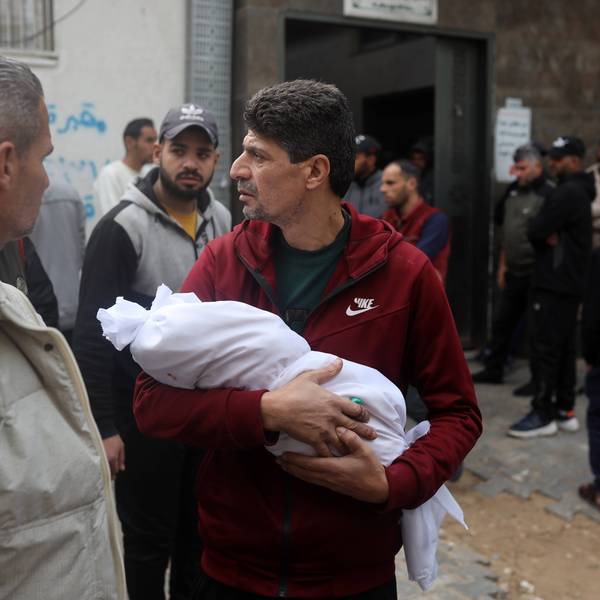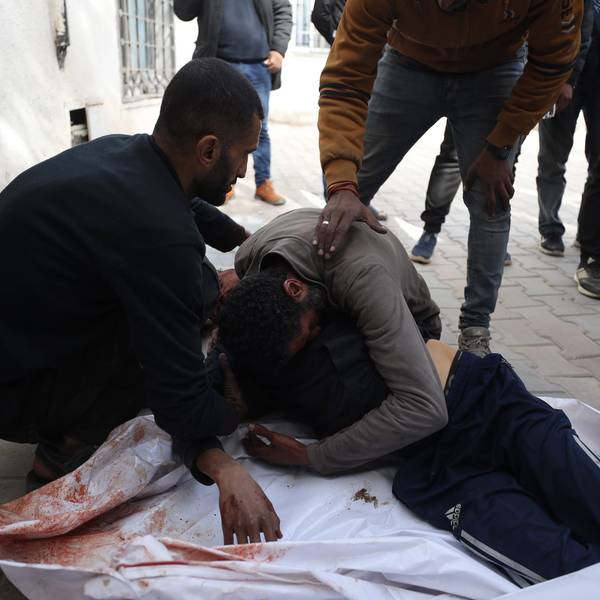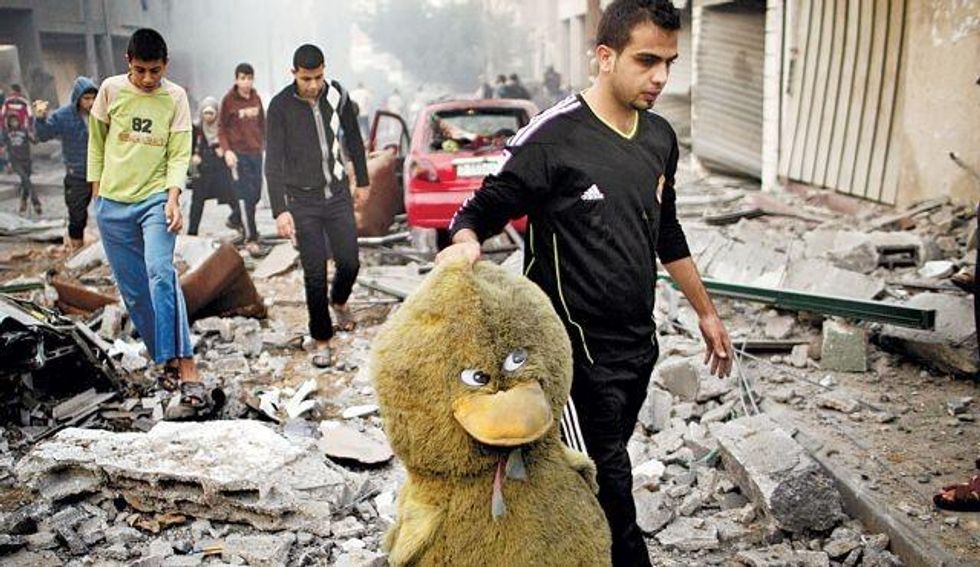Farmers on their way to sell vegetables in the marketplace, vendors of purified drinking water and people who just happened to live too close to the targets of Israeli air strikes were among the 34 Palestinians estimated to have been killed in Israel Defense Forces attacks in the past two days alone.
Just six of those casualties have been confirmed as members of militant groups.
Among the Palestinians killed in Gaza this week are the 12 members of the Daloo and Manzar families, including four small children, who died when an Israel Air Force pilot bombed their home by mistake, according to the IDF.
Between 94 and 96 Palestinians are estimated to have been killed between the beginning of Operation Pillar of Defense and 6 P.M. Monday, at least 58 of them civilians and at least 18 of them children.
The figures were gathered by the Palestinian Center for Human Rights, the Al Mezan Center for Human Rights and medical sources in Gaza.
Immediate confirmation of all the names of the casualties is unlikely and the figures provided by various sources do not always match up, making the question of precisely how many Palestinians were killed and who exactly they were a tough one to answer with precision. Collecting that information requires visiting homes that were hit, as well as hospitals and open areas, a project made all the more difficult by the frequent explosions in the densely populated residential areas of Gaza.
Meanwhile, Palestinian sources confirmed that Israel has been warning Gazans when they are about to attack a home, giving civilians a chance to flee.
Around 1 A.M. yesterday, the IAF fired three small warning rockets on a five-story Jabalya home before razing it in an air strike. Several of the residents said they also received warnings from the IDF on their cell phones.
Many residents of that building and those nearby fled the area in time to escape injury, although 15 people, including four children, were hurt in the air strike. Some 18 buildings in the area were badly damaged.
Observers said when air strikes cause such extensive damage, it indicates that explosives were concealed in the area. This has neither been confirmed nor ruled out.
But IAF warnings of an impending attack do not always give Gaza residents enough time to get away.
At about 2 A.M. yesterday, the IAF fired warning rockets at an empty home in the Zeitun neighborhood. The building exploded about a minute later, trapping members of the neighboring Abu Zur family inside their home and killing a 5-year-old boy, Mahmad Iyad Fuad Abu Zur, along with two men and a woman: Ahad Hamdi Samil Katati, 38; Sahar Fadi Assad Abu Zur, 21; and Nasma Halmi Salam Abu Zur, also 21.
Twenty-eight family members were injured in the attack and 20 homes were partly damaged.
In addition to the nearly 100 Palestinians killed since Pillar of Defense began, some 700 Palestinians have been wounded in that time, including at least 215 children.
An estimated 585 buildings have been damaged in the explosions, including 46 that were totally demolished, according to Al Mezan.
Four Gaza farmers are among the Palestinians killed in two separate Israeli air strikes yesterday morning.
Shortly before 6 A.M. Rahman Attar, 51, was killed in Beit Lahia on his way to the Jabalya market. About 90 minutes later, a truck full of tomato crates was struck by a missile in Dir al-Balah, killing the driver, Tamer Rashdi Mohammed Bashir, 31, and the two passengers, Amin Zahdi Ibrahim Bashir, 41, and Rashid Alin Attia Abu Amra, 51.
A woman from Beit Hanun said yesterday that to buy food at the Jabalya market she had to evade her daughters, who had heard news reports about the farmers' deaths and didn't want their mother to take the risk of going.
On Sunday afternoon the IAF fired two missiles on a vehicle distributing purified water to the Beit Lahia area, killing the driver, Suhail Ashur Mohammed Hamada, 42, and his 10-year-old son.
An estimated 95 percent of the water in Gaza is not fit to drink, forcing residents to buy purified water or receive it from their municipality.
Another 10-year-old boy was killed along with his father later Sunday, while they were trying to fix a pipe on the roof of their home in Jabalya. Missile or bomb fragments often cause damage to pipes and water heaters, and residents risk their lives to go up on their roofs in an effort to fix them. At 10 P.M. Jalal Nasser, 42, and his 10-year-old son Hussein were killed by an Israeli missile.
Later that night, a 31-year-old man whom relatives described as mentally retarded was killed in an air strike while standing near his home in Saja'iyya.




